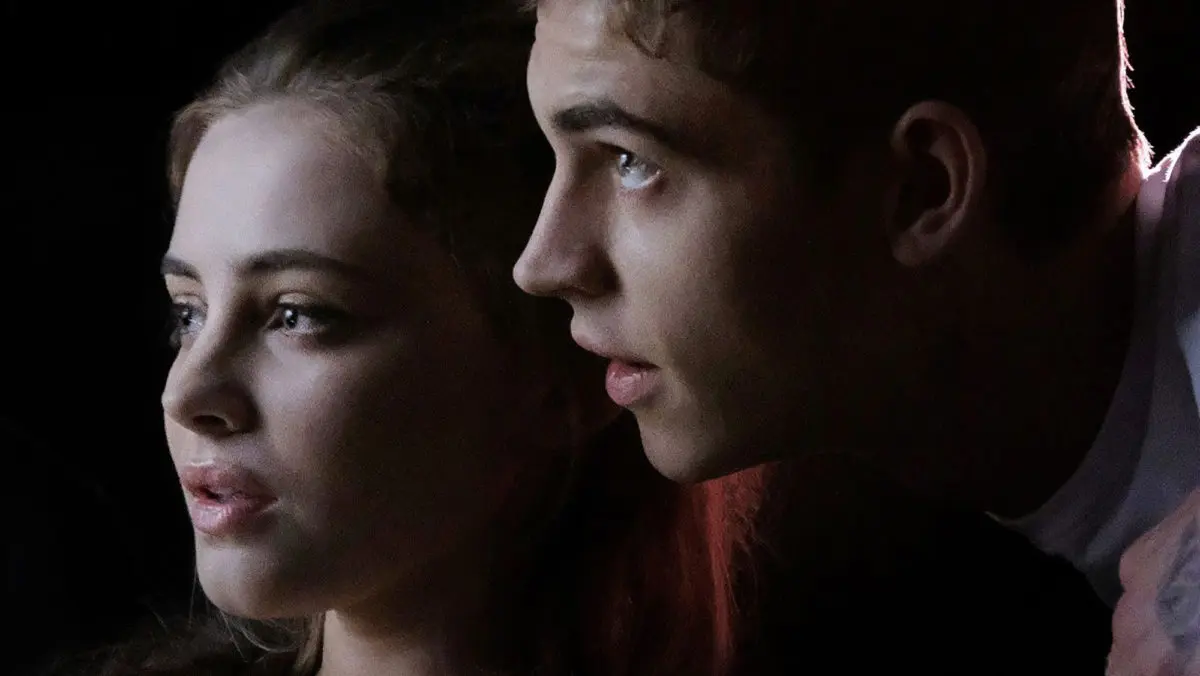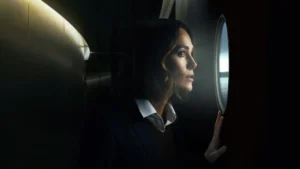Summary
This will no doubt tickle the fancy of those this tripe is aimed at, but let’s put our hands together to pray the production powers that be see fit to spare us the agony of a sequel.
Netflix film After finds itself bookended by two very different, but equally uninspired monologues played over a string of serene lakeside shots. This coming-of-age drama bursts out of the gate with Tessa Young (Josephine Langford) briefly intimating her belief in moments that define us, while her troublesome beau Hardin Scott (Hero Fiennes-Tiffin) rounds things off paying homage to the unexpectedly all-consuming power of first love. Linking these opening and closing statements is a drab, unoriginal exploration of tempestuous romance between an archetypal sweet, sheltered virgin and an inked, hot-tempered cynic with hidden depths.
We follow good-girl Tessa as she heads off to start her freshman year of college. The first ten minutes of Netflix film After see her settling into a dorm room with help from mum Carol (Selma Blair) and boyfriend Noah (Dylan Arnold), the latter not yet of age to fly the nest for university. Soon after Tessa meets an arrogant Hardin, thoughts of Noah are shelved post-haste, and a tempestuous relationship fires up on all cylinders a fraction of a cylinder.
READ: 10 Best Movies like After you must watch
Adapted from Anna Todd’s 2014 fan fiction novel of the same name – based on teen-favourite Harry Styles – After proves some stories should never be adapted for the screen. Working with a tedious script co-written with screenwriter Susan McMartin (Mr. Church), director Jenny Gage (All this Panic) connects the attempted profundity at either end of her debut feature with little of interest. As our naïve protagonist and complex antagonist pull us from start to finish through what can only be described as a narrative marshland, we can’t help but wonder, ‘Wait, haven’t we seen this before?’ And we have. Umpteen times. Just miles more compelling and far less soupy. It would be wholly unfair to argue that no chunks of dialogue are noteworthy because the flick does have its moments. A heated exchange about Pride and Prejudice is one fine example, although I have a sneaking suspicion that, with this, McMartin compares these lovebirds to Jane Austen’s Mr. Darcy and Elizabeth. That’s an audacious implication, to say the least.

It feels a lot like Gage is reaching for a more earnest version of To All the Boys I’ve Loved Before. Yet, unlike Susan Johnson’s 2018 knockout success – also incidentally adapted from a young-adult novel – the Netflix film has almost nothing audiences can get their teeth stuck into. The characters here are predominantly under-developed and one-dimensional, an issue compounded by the languid efforts of the director’s young cast to forge irresistibly crackling on-screen chemistry. Tessa’s first parting kiss with Noah – about as steamy as a painful case of hemorrhoids – really sets the tone for all subsequent interplay. Even when Hardessa begins to find common ground in their joint passion for classic fiction – a tragically half-baked theme throughout – their heat never increases above frigid. Mind you, we do have a PG-13 movie on our hands here, so a level of restraint to the raciness can be overlooked. What can’t be forgiven is writing most characters at such a surface level they’re used as no more than mere mechanisms for propelling the plot forward.
There’s an inherently disturbing issue with After, in its apparent reverence of dysfunctional relationships. It may well be that McMartin was guided by desperation to remain as faithful as possible to the source material. However, it’s an incredibly bold choice – especially in today’s meritorious era of female empowerment – to craft Tessa as subservient. She repeatedly runs to her man’s side as his moods and preferences shift, however ill-intentioned or poorly behaved he’s been. Granted, this component is substantially watered down from the novel, with a more balanced power dynamic than Todd originally intended. Regardless, this is still one delusory message that should be as totally stifled as the film’s sexual tension. That said, hats off to the progressive decision to swap the gender of Tristan (Pia Mia) – originally male in the book – pulling a touch of much-needed diversity into the tale.
Once we finally wade arduously through the first two boggy acts towards the major conflict of the third, the Netflix film a serious challenge to remember what on earth just happened. Were we slipped a roofy along the way? Was it that pesky, story-telling raccoon back there among the twisty reeds of the swampy narrative? Who can tell, but the safety of a finale is in sight, and that’s all that matters. Unsurprisingly, given Todd has already published several follow-up books, the conclusion of After hints at a continuation of this love yarn. This will no doubt tickle the fancy of those this tripe is aimed at, but let’s put our hands together to pray the production powers that be see fit to spare us the agony of a sequel.




